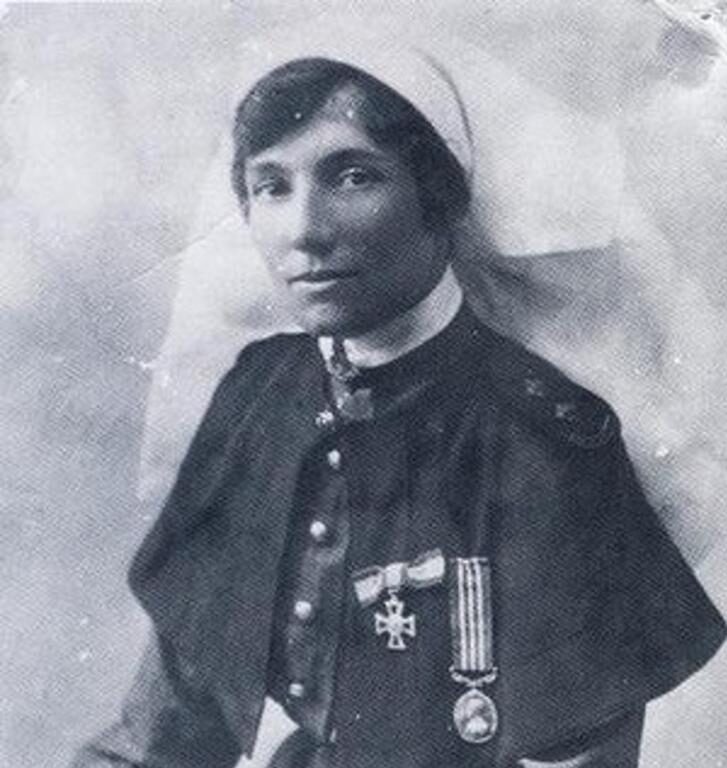The Armentières night sky was bright with flames. Bombs fell just behind the trenches, shattering the buildings and setting tents alight. As the raid continued, four nurses dashed in and out of the attack zone, dodging shrapnel from the anti-aircraft guns. They set about rescuing patients by carrying them to safety or placing tables over the wounded in an effort to protect them.
One of these nurses was Alice Ross-King, a young theatre sister from Ballarat who, even in her twenties, had been in charge of a private hospital in Melbourne. Enlisting not long after the outbreak of war, she was excited at the prospect of travelling overseas and enjoying the company of the young men deployed in the ANZAC forces. But the playful fun of the voyage to Egypt quickly turned to grim shock when soldiers began to be evacuated from Gallipoli, and Alice was confronted with their terrible wounds.
It was in Cairo that Alice met Harry Moffitt—and fell deeply in love. They spent all their spare time together and once had tea on the top of a pyramid. Their romance ended in tragedy. Despite surviving the horrors of Gallipoli, Harry was killed at Fleurbaix on the Western Front during a battle in France.
It was on the Western Front, on the summer night of 22 July 1917, that Alice experienced the devastating German air raid near Armentières—made famous by the popular and catchy soldier’s song, Mademoiselle from Armentières. The four nurses, including Alice, who so courageously risked their lives to save their patients, became the first members of the Australian Army Nursing Service to be awarded Military Medals.
Her great-granddaughter says of that time, ‘They had hundreds of people coming in. They didn’t have beds for them, they had to turn an ice-skating rink at the local amusement park into this makeshift hospital, and they were just completely overwhelmed.’
Eventually, on her return to Australia at the war’s end, she became involved in training volunteers to assist as medical aides. When the Second World War broke out, this organisation developed into the Australian Army Women’s Medical Services and Alice was commissioned as a major and appointed senior assistant controller for Victoria. After this war, in 1949, she was awarded the Florence Nightingale medal by the International Red Cross. The Royal Australian Air Force Association has honoured her by naming a residential care facility in Bull Creek, Western Australia, after her.
Throughout her life, Alice maintained a deep Christian faith—a faith renewed in the crucible of war, even as she struggled to reconcile the horrors of war with her beliefs. Her doubts were recorded in her diary.
According to her great-granddaughter, Kate Simpson, ‘Towards the back end of the war you can see from her diaries how deeply shaken she was. The Germans on their belt buckle had in German, Gott mit uns which means God is with us. And seeing them come in with that, when her Padre, the chaplain, was telling her that God was on their side, and that right was going to prevail, she just found that so difficult to deal with.’
God does not promise us easy answers in life. He doesn’t promise us an easy life either. But He does promise us strength for the day, if we turn to Him in the midst of trouble. This is what Alice Ross-King, the most-decorated female ANZAC of all, found when she placed her trust in Him.
Further reading:
Kate Simpson and Jess Racklyeft, Anzac Girl: The War Diaries of Alice Ross-King,Allen & Unwin
https://throughtheselines.com.au/research/alice-ross-king
https://afavic.org.au/stories-of-interest-item/26632/alice-ross-king-care-centre/
https://www.awm.gov.au/collection/P11013368

